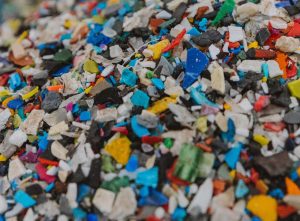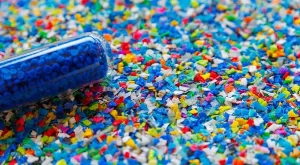Recycled granule for children’s toys
Recycled granule for children’s toys : Using recycled plastic granules for manufacturing children’s toys is an excellent way to promote sustainability. However, since toys come into contact with children, there are critical considerations to ensure the safety, durability, and compliance of the recycled material.
Key Requirements for Recycled Granules in Toys
- Material Safety:
- Must be free from toxic substances like lead, phthalates, BPA, and heavy metals.
- Certified to meet EN 71, ASTM F963, or similar toy safety standards.
- Food-grade recycled plastics are preferred to ensure no harmful residues.
- Durability:
- High impact strength to withstand rough handling.
- Resistance to wear, scratches, and cracks.
- Processability:
- Suitable for toy manufacturing processes like injection molding, blow molding, or rotational molding.
- Consistent melt flow for precision in molding.
- Eco-Friendliness:
- Incorporation of recycled content (post-consumer or post-industrial).
- Options for bioplastics or recyclable designs.
Common Recycled Plastics for Toys
- Recycled Polyethylene (rPE):
- Flexible and impact-resistant.
- Suitable for soft and rugged toys like blocks or containers.
- FDA-approved grades are available for safe use.
- Recycled Polypropylene (rPP):
- Lightweight and durable.
- Ideal for toys requiring rigidity, such as toy vehicles or furniture.
- Recycled ABS (Acrylonitrile Butadiene Styrene):
- Strong and tough.
- Commonly used in building blocks, electronic toy housings, and other detailed items.
- Recycled PET (rPET):
- Known for high clarity and strength.
- Often used in transparent or semi-transparent toy parts.
- Blended Recycled Plastics:
- Combinations of rPE, rPP, and virgin polymers to balance quality and cost.
- Blends may include additives to enhance strength, color, or UV resistance.
Challenges with Recycled Granules
- Consistency:
- Recycled granules may vary in color, melt flow, or composition. Opt for granules from reliable suppliers with standardized quality control.
- Safety Testing:
- Recycled materials require stringent testing to ensure they meet toy safety standards, including chemical composition and mechanical durability.
- Color Customization:
- Coloring recycled granules can be challenging due to base material variability.
- Traceability:
- Ensure the source of recycled material is traceable and compliant with regulations.
Additives for Recycled Granules
- Color Masterbatch: Safe pigments for vibrant and non-toxic toy finishes.
- UV Stabilizers: Protect toys used outdoors from degradation.
- Impact Modifiers: Enhance toughness for heavy-use toys.
- Processing Aids: Improve consistency during molding.

Certifications and Compliance
Recycled granules for children’s toys must comply with regulations such as:
- European EN 71: Covers mechanical, chemical, and flammability standards for toy safety.
- ASTM F963 (USA): Comprehensive safety standards for toy materials and design.
- ISO 8124: International toy safety standards.
- RoHS Compliance: Ensures absence of hazardous substances.
Applications of Recycled Granules in Toys
- Building blocks (e.g., Lego-like pieces).
- Toy cars and vehicles.
- Outdoor toys (slides, swings).
- Dollhouse furniture or figurines.
- Educational toys like counting beads or puzzles.
How to Source Recycled Granules for Toys
- Specialized Suppliers: Look for suppliers specializing in recycled materials certified for toy applications.
- Certifications: Ensure materials are tested for safety and meet global standards.
- Partnerships: Work with compounding companies to develop custom formulations tailored to toy production.
Why AMTOP?

AMTOP.co offers high-quality,customized LDPE granule for blow molding , engineered for superior durability, chemical resistance, and environmental performance. Their innovative formulations ensure long-lasting, reliable pipes that meet global industry standards. With a commitment to sustainability and customer satisfaction, AMTOP is a trusted choice for pipe manufacturers worldwide.


